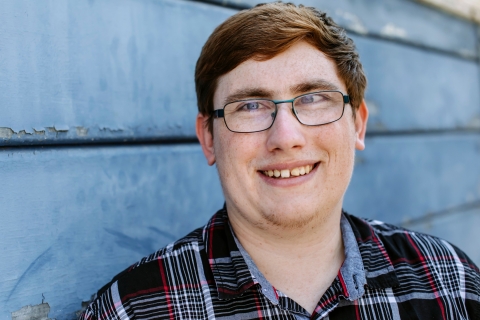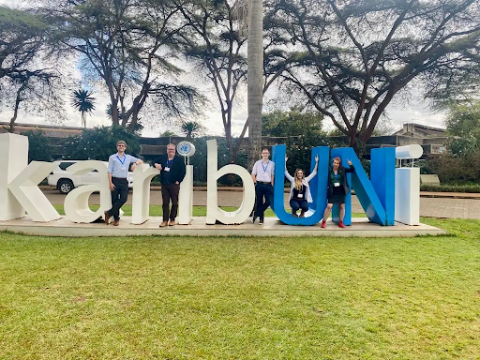

PhD student, Sam Winton, has just returned from the United Nations’ negotiations for a new global treaty on plastic pollution in Nairobi, Kenya.
Governments from around the world gathered at the UN Environment Programme (UNEP) Headquarters from 13-19 November, to discuss new global rules to address the growing environmental problems of plastic.
An inside view on world-changing negotiations
The University of Portsmouth is able to send a delegation to these meetings as an accredited observer. Sam joined colleagues from the University’s Revolution Plastics team in Nairobi as part of his research, which is following the development and outcomes of the global plastics treaty through a joint PhD at the University of Portsmouth and the University of Surrey.
Throughout the week, Sam gave an insider’s view of the negotiations through a series of blogs for the University of Portsmouth’s Global Plastics Policy Centre (GPPC).
Sam has worked as a postgraduate researcher in the Revolution Plastics team at the University of Portsmouth since its creation in 2020. Having first moved to Portsmouth in 2015 to study an undergraduate degree, and later a Masters, in environmental hazards and community preparedness, Sam's research now focuses on tackling environmental challenges and facilitating sustainable development.

Waste Pickers at Dandora Dumpsite, Nairobi (Photo: Sam Winton)
What is the global plastics treaty?
In March 2022, 175 nations agreed to develop a legally binding agreement on plastic pollution by the end of 2024.
The process is now well underway. The latest International Negotiating Committee (INC) was the third of five meetings to discuss and agree on the details of the new treaty, which might include bans of single-use plastic products, restrictions on environmentally damaging plastic polymers and chemicals, and new requirements for product design and waste management.

Members of the University’s Revolution Plastics team at the UN’s International Negotiating Committee (INC-3) Meeting in Nairobi, Kenya

